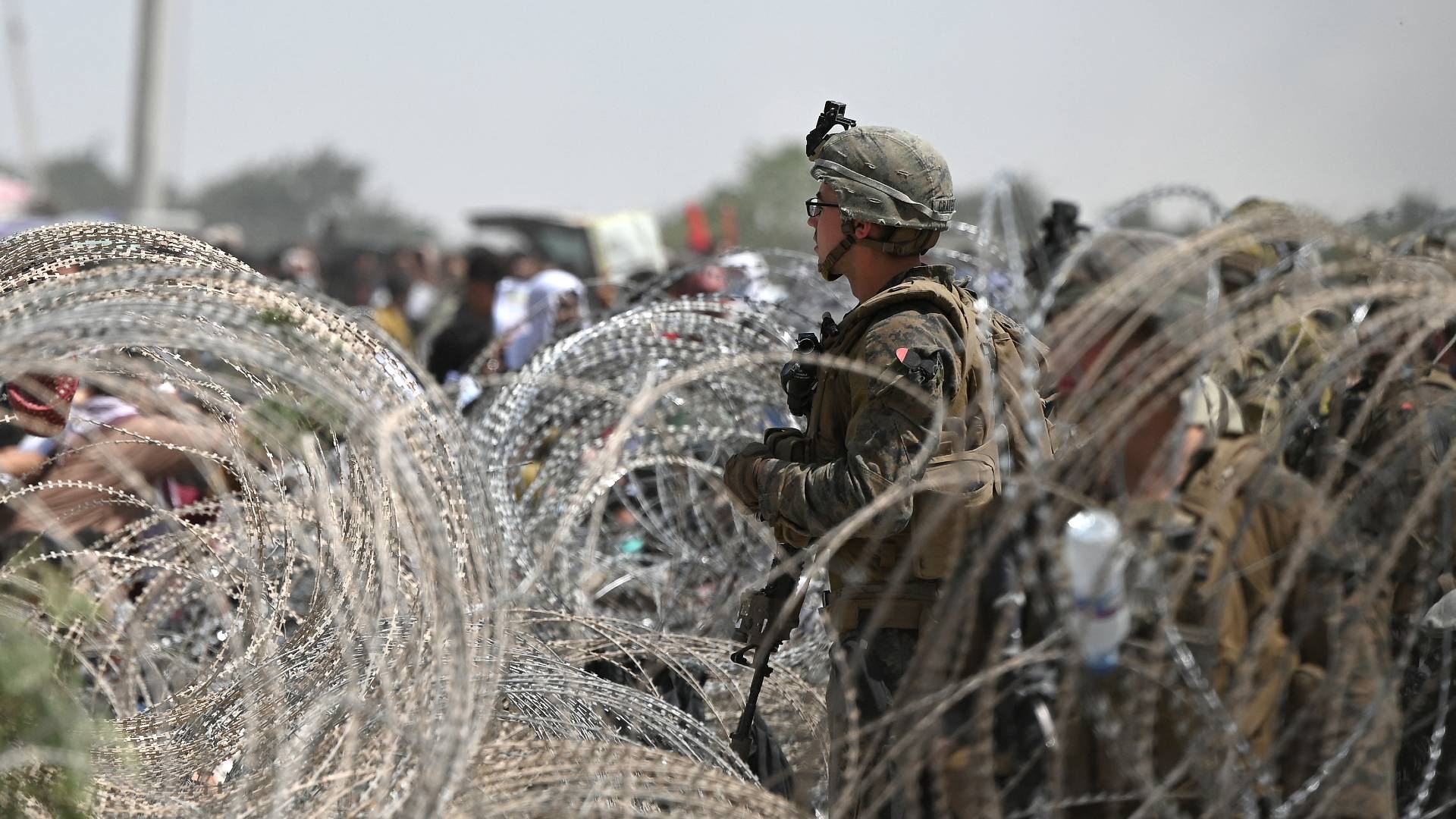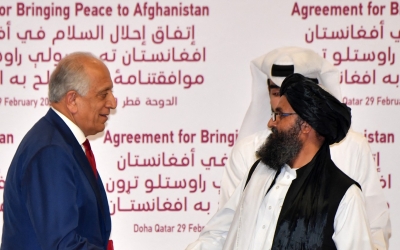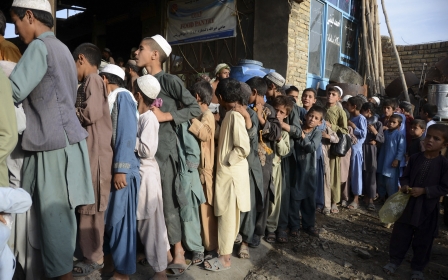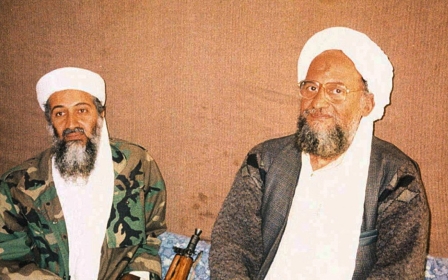Republicans slam Biden's withdrawal from Afghanistan in scathing report

House Republicans have issued a scathing rebuke of US President Biden's withdrawal from Afghanistan last August, saying in a new report that the administration repeatedly failed to prepare for the aftermath of the evacuation and engaged the issue with an "utter lack of urgency".
The leading Republican on the House Foreign Affairs Committee, Michael McCaul, published a 114-page interim report on the withdrawal, in which he outlined multiple flaws in the way in which the withdrawal was conducted.
'Following the evacuation debacle, the committee minority believes America’s standing in the world has been degraded'
- Report from House Foreign Affairs Committee Minority
"This interim report proves much of the deadly chaos during the evacuation from Afghanistan could have been prevented if the State Department and [National Security Council] had properly prepared for the expected fallout from President Biden's decision," to withdraw from the country, McCaul said in a statement about the report, which was shared with Middle East Eye.
In April 2021, Biden announced that the United States would be leaving Afghanistan, and in August the US fully withdrew from Afghanistan in a weeks-long evacuation that is largely remembered for the chaos in Kabul, when tens of thousands of Afghans tried to secure passage out of the country alongside American forces.
The Taliban, which had been fighting against the US and the Washington-backed Afghan government, had quickly taken over most of the country that year. And by the time of the US withdrawal, the Afghan government had fully collapsed and Taliban forces entered the capital city of Kabul.
New MEE newsletter: Jerusalem Dispatch
Sign up to get the latest insights and analysis on Israel-Palestine, alongside Turkey Unpacked and other MEE newsletters
"In the four months from when President Biden announced his plan to unconditionally withdraw until the fall of Kabul, the committee minority has found the State Department took very few substantive steps [to] prepare for the consequences that were expected," said the report.
McCaul's 114-page report highlighted many concerns with the withdrawal, including a lack of consular presence on the ground and rejecting offers from other countries including Pakistan to aid in evacuations which the congressman said delayed the process of getting Americans and Afghans out of the country.
"At the height of the evacuation, only 36 U.S. consular officers were on the ground in Kabul, despite needing to process more than one hundred thousand evacuees," the report said.
"Following the evacuation debacle, the committee minority believes America’s standing in the world has been degraded, the U.S. is less safe than it was before, and those Afghans most at-risk of Taliban reprisals remain trapped in Afghanistan."
US-trained Afghan forces flee to Iran
The report also raised serious concern over reports that thousands of Afghan forces with training from the US had fled into neighbouring Iran following the American withdrawal from the country.
Former Director of the Afghan National Directorate of Security General Masoud Andarabi said on 1 December 2021 that "a significant number of former Ministry of the Interior personnel went straight to Iran, where they were welcomed".
According to a May report from the special inspector general for Afghan reconciliation (Sigar), 3,000 Afghan special forces, ranging from high-ranking officers to foot soldiers, had entered Iran. The report adds that most of them "were sent back" to Afghanistan following UN intervention and a general amnesty issued by the Taliban.
However, the exact number of the forces that are still in Iran remains unknown. Middle East Eye reached out to the State Department for clarification on how many Afghan forces are in Iran but did not receive a response by the time of publication.
"Iran may seek to recruit from the pool of military-trained former Afghan security forces hiding in Iran," said the Sigar report.
Doha agreement
In his report, McCaul also hit out at Biden's rationale for the withdrawal, saying that the Doha agreement - struck between the US and the Taliban more than two years ago - had been violated by the Taliban and therefore the US president did not need to abide by it.
"The 2020 Doha Agreement negotiated by the former administration was predicated on conditions by the
Taliban that were not being met – specifically cutting their close ties to terrorist entities like al Qaeda," the report claimed.
"Their failure to adhere to the agreement nullified the U.S. requirement to withdraw."
The Doha agreement was brokered by former US President Donald Trump, who had campaigned on a pledge to finish "endless wars".
Following 17 years of bloody war and various failed attempts at diplomacy, the deal was signed in February 2020 by US special envoy Zalmay Khalilzad and Taliban political chief Mullah Abdul Ghani Baradar, with former US Secretary of State Mike Pompeo serving as a witness.
The Taliban agreed that Afghanistan would not be used by groups like al-Qaeda, the Islamic State in Khorasan (IS-K), or other terrorist groups to conduct attacks that "threaten the security of the United States".
The Taliban also agreed to take part in peace talks with the Nato-backed Afghan government – a prospect the group had previously dismissed.
In return, the US pledged to reduce its number of troops in Afghanistan, followed by a full Nato withdrawal.
The Doha agreement has also recently been highlighted following the US targeted killing of al-Qaeda leader Ayman al-Zawahiri earlier this month in a drone strike in Kabul.
The US claimed the Taliban had violated the agreement with Zawahiri's presence in Afghanistan, while the Taliban accused Washington of violating the agreement with its strike.
Middle East Eye delivers independent and unrivalled coverage and analysis of the Middle East, North Africa and beyond. To learn more about republishing this content and the associated fees, please fill out this form. More about MEE can be found here.





